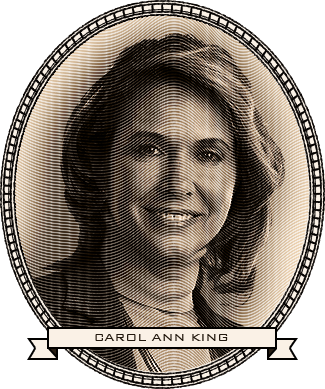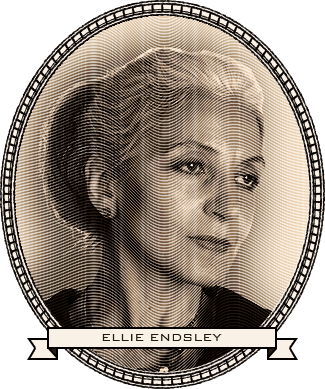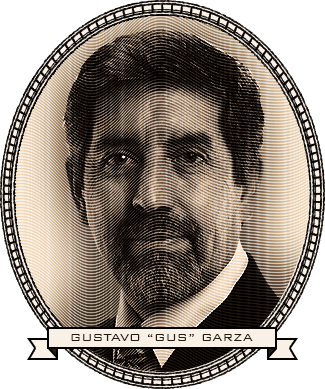January 29th, 2014
Episode 3: Carol Ann King
Carol King can see the protestors gathered outside the Speaker’s offices at the western end of the Capitol from her 15th floor office at 825 Congress Avenue. She knows who sent them.
She cannot read the protestors’ signs, but she doesn’t need to. She is sure that some of them include disparaging shots at her, personally, and about her deep ties to the Speaker. This cheap, elementary display is being widely broadcast and aggressively followed. She could check the live feeds or the reports from her monitors if she really wanted to know. She doesn’t.
“Mother FUCKERS!” she growls.
Open on her monitor is an expense report from her recent trip, and a dozen digital receipts that still need to be categorized and labeled. She wanted to finish the report before her weekly meeting with Gonzo, but she is angry and can’t focus. Like a gorilla in a cage, she begins to pace back and forth – her eyes transfixed on the agitators down below.
While King was overseas, she’d kept a close eye on Ellie Endsley’s efforts to pick a fight. But she had been careful not to engage. In fact, King had declined every opportunity to comment. But it is getting harder to remain quiet.
Endsley first came after King last year by attacking her for some of her early public affairs work, which was done on behalf of a nuclear waste disposer in West Texas. “That’s work that had to be done by someone,” King’s assistant had protested defiantly when reports revealing Endsley’s smear tactics first appeared in the queue.
Endsley had published private emails exchanged by King and her client more than 15 years earlier. They contained hundreds of discussions covering every aspect of the federal and state regulatory issues in play at that time. Local politics. Government oversight. Money. Everything. Endsley released all of it.
King and her former client could have sued, but that’s what Endsley wanted. King suspects that Endsley has more information to share, and that Endsley wants a high profile fight to frame the delivery of the material she is holding back.
What Endsley has, exactly, King does not know. But she knows what Endsley and her online “advocates” had dug up before, and King smells a baited trap.
“None of us understood,” King reminds herself sternly, replaying a conversation she has with herself whenever Endsley’s people invade her thoughts. “Everyone. All of us. We left digital footprints everywhere.”
It was true that she wasn’t alone, which comforts her, a little. But the truth was that some people knew. And, there was the time when concerns about fracking near the disposal site had people stirred up all over the state. That was a showstopper. The work she’d done to stop the top from flying off revealed a lot about how the state worked at that time. If someone removed the veil from all of that, it could be problematic.
Her assistant was right: unless the NIMBYs wanted nuclear waste to be driven around in trucks until the end of time (or, god forbid, launched into space, as some had suggested), someone had to find a place to put it. But Endsley wasn’t arguing the policy decisions; she was exposing the processes of government – of power – and she was using people angered by the process to win attention.
Endsley’s troops were using political ammunition, too. Although they had fallen silent on the subject for more than two weeks, they had drawn attention to more of King’s early political work, including persuading her friends in the media to undermine Democratic candidates who had a real shot at upsetting Republican control. Endsley had emails from that episode, too. And text messages. And inflammatory posts on discussion boards that were posted by members of King’s team using phony names.
Again the anger swells. King pounds an impotent fist against the glass.
“You’re amateurs,” she mutters defiantly. But she knows that while their tactics are nothing more than techniques used for centuries by carnival barkers and newspaper publishers, Endsley and her crew have the power of information.
They have lots and lots and lots of information – about her. They way they are using that information is compromising her position with the Speaker.
She touches her neck gently with the tips of her fingers as she suddenly recalls a lunch she’d shared with the Speaker, nearly twenty years earlier, long before he had become Speaker.
King has a photographic memory – a talent she has managed to hide from everyone but her parents and her daughter – and her lunch with the Speaker plays in her mind with a vividness that gives her goose bumps.
She can smell the coffee into which the Speaker stirs a second packet of sugar. And, as they sit in a private dining room at the Quorum Club, she can taste the tres leches cake she had selected from the dessert cart.
At that time, the Speaker was a senior staffer for the Governor, and she was the Governor’s spokesperson. They were celebrating a small victory. They felt invincible.
“What’s the secret, Carol Ann?” Gus Garza had asked her with a sly smile, calling her by the special nickname that only her father had used before him. “How do we win their attention again, and get them to vote with us?”
King had smiled in return, acknowledging the game they had played many times together. Both of them had been raised in households where love of country and respect for the responsibility of public service was as important as religion – if not more so – and they loved that they shared that.
“The secret,” she had replied, trying to improve on the last time she’d answered the same question, “is the power of cooperation. If you gather enough people under a single banner with a singular, focused message, you can change things for the better.”
The Speaker had nodded thoughtfully, then challenged her answer in a new way: he said, “Everyone’s definition of ‘better’ is different.”
He’d said more on the subject, but King is suddenly torn from her reverie by the ferocity with which her assistant – who is stationed just outside of her office door – is barking orders at someone on the phone.
She listens for a moment to see if something is wrong, or if her assistant is simply being the guard dog she’d been trained to be. But there is nothing more to hear – just silence.
King wants to return to the cozy warmth of her memory, but she knows there isn’t time for that. She could live in the past with her memories of Gus Garza, or she can live in the present, and keep fighting for the Speaker until he pulls her from the game.
“What does Endsley want?” she asks herself again. “How do I help her get what she wants, or move her out of my way?”
The gray winter light fades in the window. She glances at her watch, a Tiffany Atlas in 18k rose gold, a gift from the campaign after helping the future Speaker win his first term in the House. It’s time to gather her things to leave for Gonzo’s office. She takes a last look out at the protestors, and she can see that some of them are lighting candles – a visually attractive tactic that Endsley employs ad nauseam.
The candles, though dim and distant, make her melancholy. It has been a long, long time since the Speaker called her Carol Ann.















Comments
COMMENT POLICY
The Independent Candidate is pleased to include your comments and observations about this story. We encourage lively debate on the issues of the day, but we ask that you refrain from using profanity or other offensive speech, engaging in personal attacks or name-calling, or posting advertising. To comment, you must be a registered user of The Independent Candidate, and your user name will be displayed. Thank you for sharing your thoughts. We're here to serve.
You must be logged in to leave a comment.
Login | Register